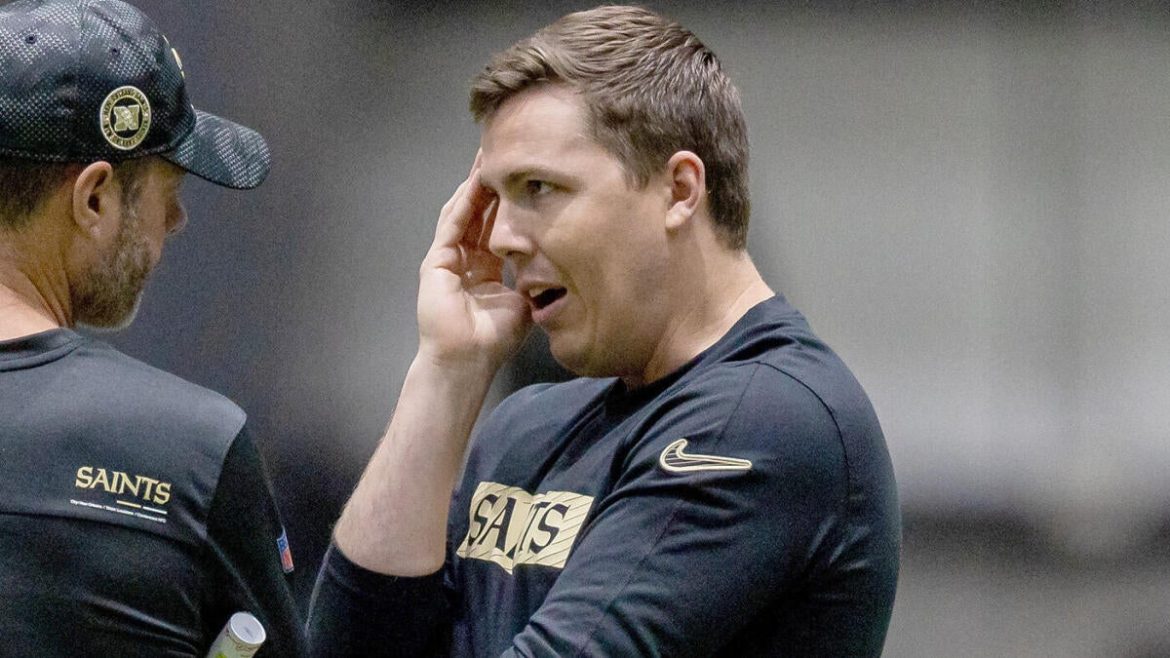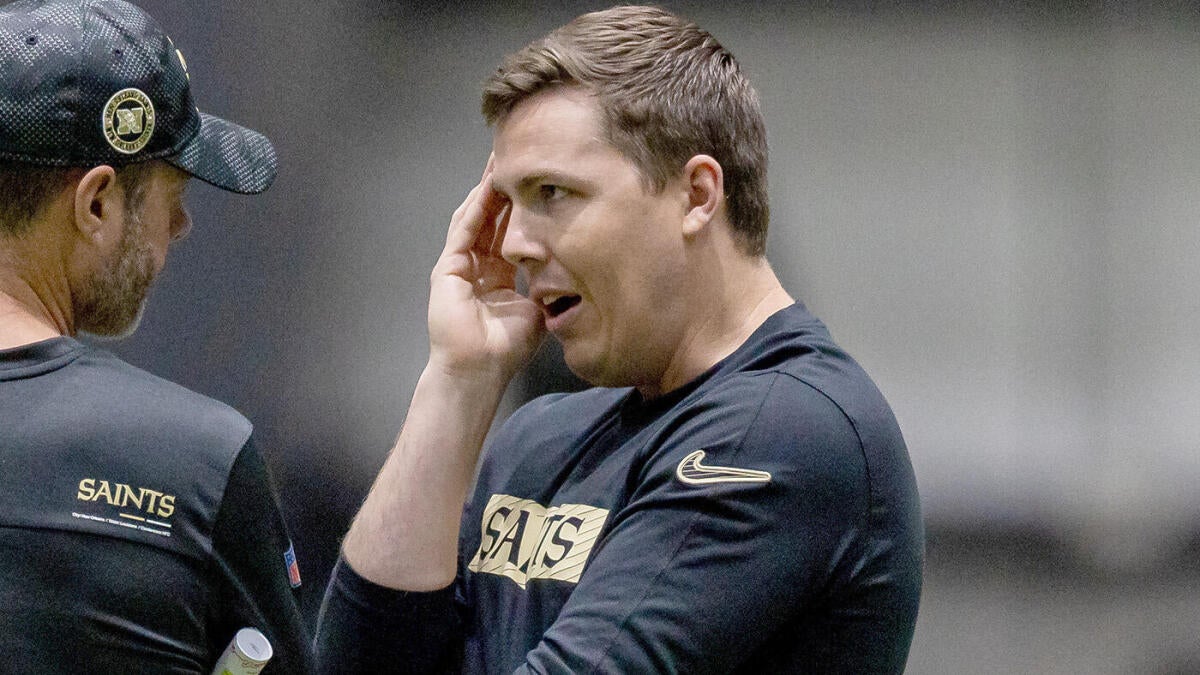The New Orleans Saints’ Quarterback Quandary: Unpacking a Post-Drew Brees Era of Uncertainty
—
From Glory to Purgatory: The Saints’ Quarterback Crisis
The New Orleans Saints once stood as a vibrant NFL franchise thanks largely to the legendary presence of Drew Brees, a future Hall of Famer whose 15-year tenure transformed the team into a perennial NFC contender. Under Brees, the Saints blossomed from mediocrity into a formidable powerhouse. However, since his retirement in March 2021, the franchise has struggled to identify an adequate successor, finding itself mired in what many have coined “quarterback purgatory.”
This purgatory manifests as a complex state of limbo—where the Saints neither have a clear franchise quarterback nor the stability that such a figure brings, resulting in inconsistent performance and organizational uncertainty. Unlike other teams who have secured promising young quarterbacks or maintained a steady progression plan, the Saints appear to have cycled through various candidates without locking down a definitive answer.
—
The Missed Opportunities and Strategic Missteps
Several experts and former players have highlighted that the Saints’ woes stem from a lack of strategic succession planning post-Brees. Former Saints quarterback Jim Everett described the period after Brees’ departure as “a ship without a rudder,” referring to a lack of direction and cohesive vision. This metaphor captures the scattered approach employed by the franchise, which includes trusting veterans like Derek Carr and drafting prospects such as Tyler Shough with hesitant confidence rather than clear faith.
One particular missed opportunity haunted the franchise—passing on Lamar Jackson in the 2018 draft. Jackson went on to become a league MVP, and many regard the Saints’ decision to prioritize positions other than quarterback as a critical error in their rebuilding plan. Trades like the one involving Marcus Davenport, who was drafted instead of pursuing a quarterback of Jackson’s caliber, underscore a prioritization that some see as shortsighted in hindsight.
The consequences are compounded by financial constraints. Salary cap limitations restrict the ability to pursue high-profile veteran quarterbacks or retain promising young talent without overinvestment. Thus, the reliance on drafting a do-it-all rookie quarterback on a rookie-scaled contract emerges as the most viable exit strategy from this indecisive phase.
—
Current Quarterback Landscape and Prospects
The Saints’ current quarterback scene remains tenuous. Derek Carr’s tenure, while bringing some stability, ended with injury woes, notably a shoulder injury that diminishes his ability to command the position with consistency or for the long haul. Carr’s 14-13 record across two seasons offers a glimpse of mediocrity rather than the franchise-leading performance the Saints require.
In the 2025 NFL Draft, the Saints took a chance with Louisville’s Tyler Shough in the second round—a move met with cautious optimism. Drew Brees himself weighed in, acknowledging that while Shough may not immediately fill the legendary shoes, investment in youth is vital. Shough’s development trajectory, however, resembles many rookies’ paths—uncertain but hopeful.
—
Lessons from Other Franchises: Green Bay and Cincinnati
Contrasting the Saints’ quarterback struggles are teams like the Green Bay Packers and Cincinnati Bengals, whose success stems from having a transition plan for franchise quarterbacks. Packers have navigated post-Aaron Rodgers transitions with clear planning, while the Bengals surged to elite status by developing young quarterback Joe Burrow and surrounding him with complementary talent.
The Saints’ predicament illustrates that merely having a former star quarterback is insufficient; deliberate succession strategy and an organizational philosophy that prioritizes quarterback development are imperative to sustained success. The unrealistic expectation that one can instantly replace a Hall of Fame-caliber quarterback like Brees only magnifies the franchise’s frustrations.
—
The Broader NFL Context: Quarterback Transitions Are Hard
The Saints’ plight parallels broader NFL realities where transitioning from elite quarterbacks is challenging. As NFL analyst Scott Kacsmar and others note, quarterback success is influenced by offensive line performance, coaching stability, and systemic support. Even teams like the Denver Broncos, who invested heavily in acquiring Russell Wilson, faced monumental challenges adjusting post-trade, resulting in cap constraints and mediocrity.
Moreover, attempts to replicate former success without structural readiness or established talent pipelines often lead to languishing seasons and fan disappointment. Saints fans, once spoiled by Brees’ brilliance, now confront the steep learning curves and unpredictable nature of quarterback regeneration.
—
Charting a Way Forward: Strategies for Saints’ Revival
Emerging from this quarterback limbo involves multifaceted approaches:
– Invest Heavily in the Draft: The salary cap environment mandates reliance on rookies. The Saints must identify and develop a young quarterback on a rookie contract capable of growth and eventual franchise leadership.
– Strategic Patience: Quick fixes via veterans or short-term signings offer limited returns. Patience with developing talent, as seen in franchises like Cincinnati, can finally orient the team toward stability.
– Strengthen Supporting Cast: A quarterback’s success hinges on offensive line availability and quality skill-position players. Addressing these facets concurrently is critical to enable any quarterback’s success.
– Organizational Cohesion: Clear front office vision and coaching philosophies aligned with quarterback development are necessary. This coherence can prevent drifting without direction, the “ship without a rudder” effect.
—
Conclusion: Rebuilding Saints’ Identity Beyond Brees
The New Orleans Saints’ journey since Drew Brees’ retirement exemplifies the broader challenge NFL franchises face in transitioning from iconic quarterbacks. Without a clear succession plan and strategic foresight, the team has found itself stuck in purgatory—caught between nostalgia for past glory and ambiguity about the future. Emerging from this phase will require a disciplined commitment to drafting and developing young talent, shrewd management, and a collective embrace of rebuilding patience.
Ultimately, Saints fans and the franchise must recalibrate expectations, recognizing that transcendent quarterback talent is rare and can’t be replaced instantly. Instead, the road forward offers an opportunity: to redefine the organization’s identity, build anew around emerging players, and rekindle the competitive spirit that once made New Orleans a championship destination. The quarterback purgatory may be uncomfortable, but it is also a crucible in which the next generation of Saints legends may be forged.





